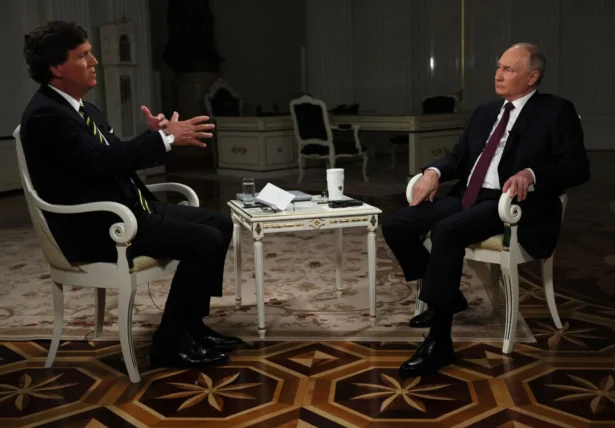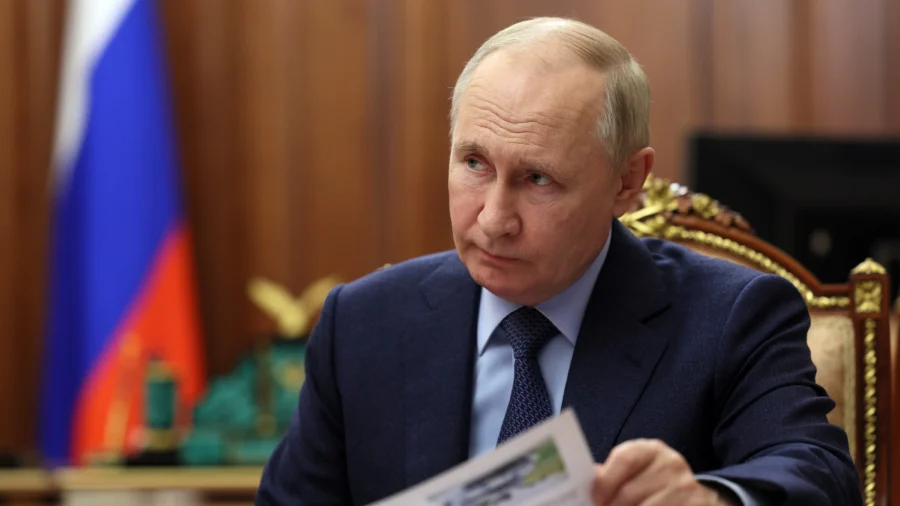According to a report by the Estonian Foreign Intelligence Service, Russian President Vladimir Putin is likely to double the number of troops stationed along Russia’s border with the Baltic states and Finland, as Moscow envisions a potential military conflict with NATO within the next decade.
“Russia has chosen a path which is a long-term confrontation,” Kaupo Rosin, director-general of the Estonian Foreign Intelligence Service (FIS), told reporters.
“We see that the Russians, in their own thinking, are calculating that a military conflict with NATO is possible in the next decade,” he said.
“Russians are planning to increase the military force along the Baltic states’ border but also the Finnish border. We will highly likely see an increase of manpower, about doubling perhaps. We will see an increase in armed personnel carriers, tanks, artillery systems over the coming years.”
However, Mr. Rosin emphasized that a direct attack on a NATO country by the Russians is “highly unlikely” in the short term, given that under NATO’s Article 5, an attack on one NATO state is considered an attack on all.
The FIS report comes as Ukrainian forces are running low on ammunition two years after Russia occupied part of its territory.
Western leaders have been worried about the extent of Mr. Putin’s territorial ambitions, fearing his veiled threats to attack NATO countries could be more than a threat.
German Defense Minister Boris Pistorius warned in January that they “hear threats from the Kremlin every day,” adding that German intelligence experts consider an attack on a NATO country to be a possibility in the coming five to eight years.
Danish Minister of Defense, Troels Lund Poulsen, made similar comments last week.
During a two-hour interview with former Fox News host Tucker Carlson last week, the Russian leader denied having such ambitions.
When asked whether he could imagine a scenario wherein he would send troops into Poland, he replied: “Only in one case—if Poland attacks Russia. We have no interest in Poland, Latvia, or anywhere else. Why would we do that?” he added. “It is absolutely out of the question.”

“It goes against common sense to get involved in some kind of a global war. And a global war will bring all humanity to the brink of destruction,” Mr. Putin added.
The FIS report contained several notable points of interest regarding the situation in Russia. It states that the war in Ukraine has become the focal point of its internal politics, with all the social strains accompanying it.
“The militarization of Russian society is ongoing at all levels, and the regime is progressively adopting a totalitarian character,” the report states.
Russia’s efforts to seek allies in the global South and the Arab world due to international isolation have not produced the desired results.
While Russia is preoccupied with winning and surviving the war in Ukraine, the report assesses that Russia’s largest partner, China, operates under a broader focus of realizing its global ambitions, and its partnership with Russia should be interpreted from within this framework.
The FIS report also noted that the “spread of Chinese technology into critical infrastructure poses a threat to Estonia’s security,” a problem virtually all countries that have imported technology from China face.
The FIS asserted another Russian goal is to achieve military dominance in the Baltic Sea region. “For Estonia, Russia’s military reform entails a significant increase in Russian forces near the Estonian border in the coming years.”
Estonia has been a NATO member since 2004, 13 years after gaining its independence from the former Soviet Union.

